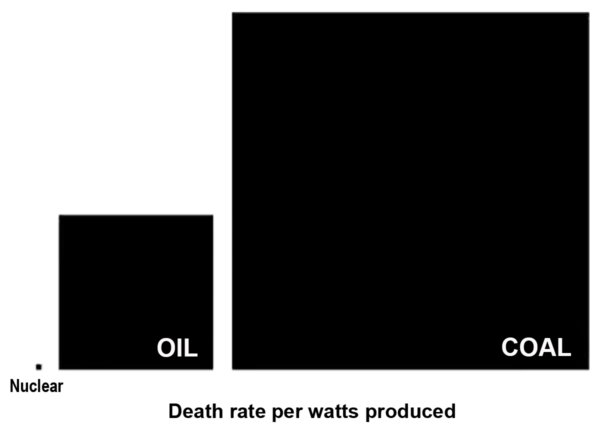
“For every person killed by nuclear power generation, 4,000 die due to coal, adjusted for the same amount of power produced.”
— Seth Godin, The Triumph of Coal Marketing
Official website of the author

“For every person killed by nuclear power generation, 4,000 die due to coal, adjusted for the same amount of power produced.”
— Seth Godin, The Triumph of Coal Marketing
More blurbs continue to roll in for Defending Jacob. I won’t reprint them all here. I hate to turn this blog into an endless infomercial for my books. But if you’re curious, I put together a page to gather up the advance praise — read: blurbs — for the book. My sincere thanks to the authors who chimed in recently, Chevy Stevens, Stephen Frey and John Lutz, as well as the earlier contributors, Phillip Margolin, Lisa Gardner and Nicholas Sparks.

This video is not new. It is Seth Godin’s presentation at the O’Reilly Tools of Change for Publishing Conference in February 2008. But I loved it at the time and still do. It is one of the few discussions of the digital publishing revolution that get me excited about the future rather than just scaring the hell out of me. Godin is a great speaker, self-promoter, and motivator, but there’s plenty of ideas here for ordinary mortals, too.
I recommended the video to a writer-friend today who is gearing up to promote his book, then I had trouble tracking it down on the web, mostly because I could not remember the name of it. So here it is, John: “10 Bestsellers: Using New Media, New Marketing, and New Thinking to Create 10 Bestselling Books.” Enjoy.
[Update 5.5.2023: This video is no longer available.]
Nigel Marsh: How to Balance Work and Family
I thought of myself as a writer for years before I got around to writing anything.
Me too.

Earth — the tiny blue dot about halfway down the shaft of light on the right — as seen from the Voyager 1 in 1990, at a distance of nearly 4 billion miles. Via.
Look again at that dot. That’s here. That’s home. That’s us. On it everyone you love, everyone you know, everyone you ever heard of, every human being who ever was, lived out their lives. The aggregate of our joy and suffering, thousands of confident religions, ideologies, and economic doctrines, every hunter and forager, every hero and coward, every creator and destroyer of civilization, every king and peasant, every young couple in love, every mother and father, hopeful child, inventor and explorer, every teacher of morals, every corrupt politician, every “superstar,” every “supreme leader,” every saint and sinner in the history of our species lived there—on a mote of dust suspended in a sunbeam.
Every morning I tell myself, Today has to be productive—and then something happens that prevents me from writing.
Italo Calvino (via theparisreview)

The last couple of weeks I’ve been cleaning up a few final details for my last novel and trying — futilely — to get the next one started. How, exactly, do you start writing a novel? Honestly, I have no idea. I’ve been spending my days writing and unwriting the same few sentences, kneading the same few barren ideas in the hope they will yield something new — a character, a scene. So far, nothing.
Of course, the initial stages of a new project are always hard. There is nothing to work with, just a few very vague concepts and reams and reams of blank pages. Big deal, right? I’ve been here before. I know how the process works. I know this period is going to suck. I expect it to suck. The trouble is, well, it has sucked.
It is an intractable fact of the writing life: a writer who stops writing for any reason is vulnerable to all sorts of infection. Laziness. Time-wasting. Loss of confidence. Now a new peril: impostor syndrome, as the rave reviews for my just-completed novel increasingly diverge from the endless fail-loop of my workdays, and the disconnect between hype and reality becomes harder and harder to ignore.
Enough is enough. Herewith, a reminder to myself of some basic rules. They aren’t really commandments; in fact, they may not work for other writers at all. And there aren’t even ten. But they’re important enough to me to recite them here, again. (If you’ve been reading this blog awhile, you’ve probably run across these ideas in bits and pieces.) These are the things I tend to forget when I fall into an unproductive rut in the beginning stages of a novel, as I have now.
[Read more…] about The Five Commandments